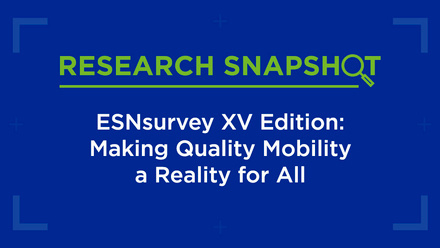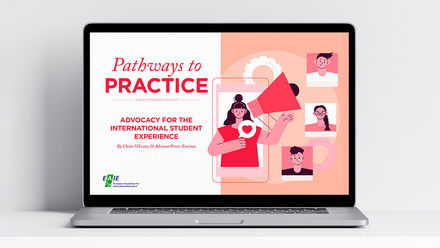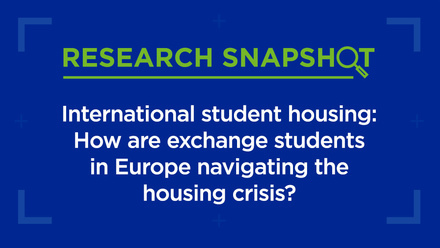International students and alcohol: should we be worried?

While there are known benefits of studying abroad for young people, concerns have been raised over the health of travelling students. In particular, regarding alcohol consumption during the mobility period. Findings from a research project that collected data on a large international sample of Erasmus students can inform health promotion services and programmes for students completing study abroad experiences.
We all know that moving from one environment to another brings about many changes in people’s life. Most study abroad students thrive, and the research has shown there are many benefits to studying abroad for young people, including increases in intercultural awareness, foreign language proficiency, and a more general psychological development.
Lifestyle changes
However, significant lifestyle changes occur when moving abroad and health problems are oftentimes observed in study abroad students – especially concerning alcohol consumption, illicit drug use and unsafe sexual behaviour. One study, for example, showed that American students more than doubled their drinking during study abroad trips. This increase exposes student to a greater number of alcohol-related consequences, including hangovers, poor academic performance, accidental injury and sexual assault victimisation.
Policy on alcohol consumption is very strict in the USA, for example (ie, people younger than 21 are not allowed to drink). American students may therefore take advantage of the more favourable social and policy environment they find in many destination countries. This can partly explain their increased drinking. What about European students?
A pattern emerges
Until recently no such research was available on European study abroad students participating in mobility programmes like Erasmus+. At the last Annual EAIE Conference in Liverpool this past September, an Ignite© presentation – “Let’s get the most out of it!”: a study on Italian Erasmus students’ alcohol use while abroad – discussed findings from a research study on Italian Erasmus students. Results were consistent with research on American study abroad students. Students showed overall heavier drinking pattern during the study abroad experience.
Interestingly, Erasmus students were perceived to be a heavy drinking population even before students’ departure. When asked to explain why as Erasmus students they would drink more, students described the study abroad experience as one involving greater social and leisure opportunities, reduced social control, and they also indicated study abroad specific factors (eg alcoholic beverages cost in the host country).
New research
The Lifestyle in Mobility project, a two-year research study funded by the European Foundation for Alcohol Research (ERAB), collected data from a large sample of Erasmus students from more than 30 member and Erasmus+ programme states. This is a collaborative research project between the Università Cattolica del Sacro Cuore, Italy, Cardiff University, UK, and the student association AEGEE-Europe.
Dozens of students were interviewed and 1000 completed a questionnaire on their health-related behaviours at pre-departure, during the study abroad experience, and upon return to their home country. Findings show that relevant changes in students’ behaviours occur regardless of students’ country of origin or destination. In particular, during the study abroad experience, many students put themselves at risk from excessive alcohol consumption and suffer adverse consequences as a result. Findings of the Lifestyle in Mobility project can inform health promotion services and programmes for students completing study abroad experiences.
What we can do
Both sending and receiving institutions may consider intervening on student alcohol consumption. For example, students may benefit from pre-departure interventions to reduce their expectation that the study abroad experience will be a period of increased drinking. These expectations are often overestimated and are potentially amenable to change through social norms feedback interventions. This form of intervention offers students realistic information on peer students’ alcohol use and is already being used to challenge perceptions and expectations concerning alcohol use in college students in the USA and several other countries around the world. Evaluation studies suggest social norms feedback interventions may be successful for study abroad students too.
Socialisation is critical for Erasmus students. The Erasmus programme is often defined by segregation from local students (ie the ‘Erasmus bubble’) and as being a party period. Receiving institutions might implement interventions to promote greater social and cultural engagement with local students. To hang out with local students could contribute to making the Erasmus life less like a party period and more similar to the lives of local students.
Learning more
The Lifestyle in Mobility project partners will hold a dissemination and action event on 15 February 2017 in Brussels. This meeting will present findings and host a forum for discussion on opportunities to improve students’ health with stakeholders, researchers and professionals in the fields of International Higher Education and health promotion among youth. To find out more and register to attend, visit the event website.
Giovanni works at Università Cattolica del Sacro Cuore, Italy, and is the principal investigator of the Lifestyle in Mobility research project.






